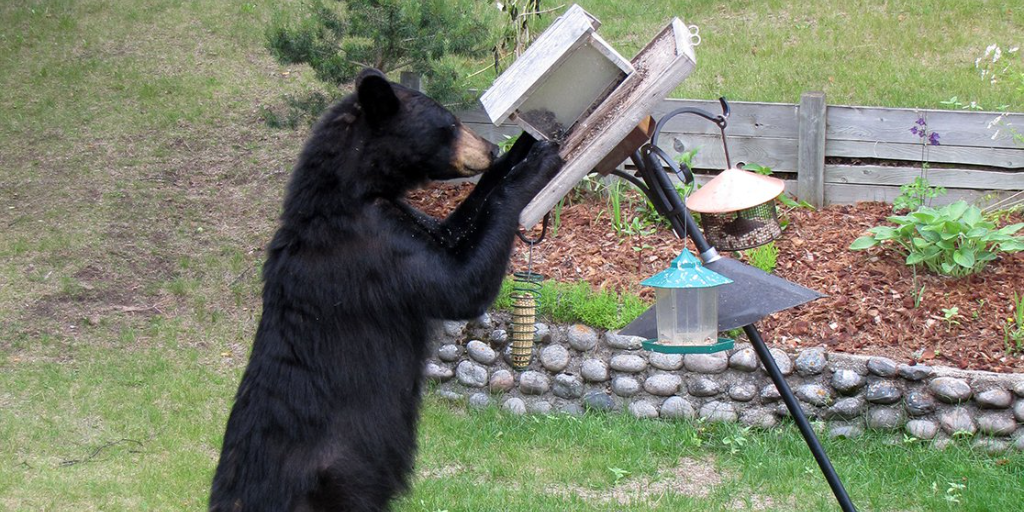NEWPORT — The Vermont Fish & Wildlife Department says warm spring weather and melting snows will cause bears to come out of their winter dens in search of food.
The department recommends taking down bird feeders on April 1 to avoid attracting them.
Bears are very fond of suet and birdseed, especially black oil sunflower seed.
Bringing feeders in at night doesn’t work because bears will still feed on seed that is spilled on the ground.
Bird feeders are just one of the things that can attract hungry bears. Other sources of food that bear find appealing are pet food, barbecue grills, garbage, household trash containers, open dumpsters, and campsites with accessible food and food wastes.
Officials are also reminding Vermonters that purposely feeding a bear is not just bad for the bear, it’s also illegal.
Fish & Wildlife offers the following tips to avoid bear problems:
Keep chickens and honeybees secure within an electric fence or other bear-proof enclosure.
Never feed bears, deliberately or accidentally.
Feed your pets indoors.
Store trash in a secure place. Trash cans alone are not enough.
“We are asking anyone who has a problem with a bear to report the incident in a form that we have on our website,” said Forrest Hammond, Vermont’s bear biologist.
That form can be found at www.vtfishandwildlife.com under “Living with Wildlife.”
“There is a section in the form where you can ask us to call you to provide advice.”



We had a bear come INSIDE our barn last May. It killed and ate and older ewe. The same bear did the same thing the week before a half mile away from us. It killed two sheep but didn’t eat them. The game wardens do not notify you when there is a killer bear in the neighborhood. They care more about the bears than they do your livestock.